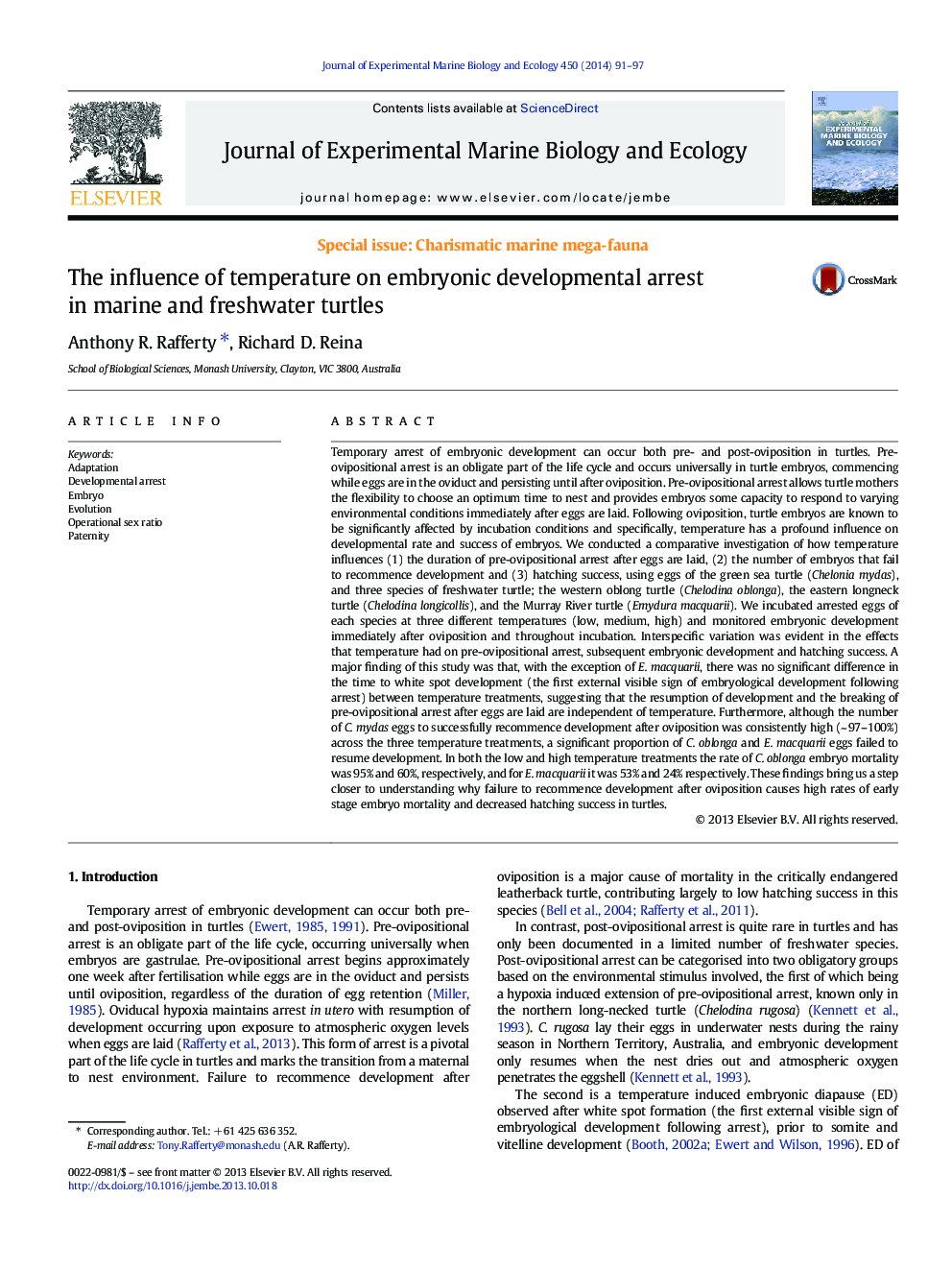| کد مقاله | کد نشریه | سال انتشار | مقاله انگلیسی | نسخه تمام متن |
|---|---|---|---|---|
| 4395614 | 1618425 | 2014 | 7 صفحه PDF | دانلود رایگان |
Temporary arrest of embryonic development can occur both pre- and post-oviposition in turtles. Pre-ovipositional arrest is an obligate part of the life cycle and occurs universally in turtle embryos, commencing while eggs are in the oviduct and persisting until after oviposition. Pre-ovipositional arrest allows turtle mothers the flexibility to choose an optimum time to nest and provides embryos some capacity to respond to varying environmental conditions immediately after eggs are laid. Following oviposition, turtle embryos are known to be significantly affected by incubation conditions and specifically, temperature has a profound influence on developmental rate and success of embryos. We conducted a comparative investigation of how temperature influences (1) the duration of pre-ovipositional arrest after eggs are laid, (2) the number of embryos that fail to recommence development and (3) hatching success, using eggs of the green sea turtle (Chelonia mydas), and three species of freshwater turtle; the western oblong turtle (Chelodina oblonga), the eastern longneck turtle (Chelodina longicollis), and the Murray River turtle (Emydura macquarii). We incubated arrested eggs of each species at three different temperatures (low, medium, high) and monitored embryonic development immediately after oviposition and throughout incubation. Interspecific variation was evident in the effects that temperature had on pre-ovipositional arrest, subsequent embryonic development and hatching success. A major finding of this study was that, with the exception of E. macquarii, there was no significant difference in the time to white spot development (the first external visible sign of embryological development following arrest) between temperature treatments, suggesting that the resumption of development and the breaking of pre-ovipositional arrest after eggs are laid are independent of temperature. Furthermore, although the number of C. mydas eggs to successfully recommence development after oviposition was consistently high (~ 97–100%) across the three temperature treatments, a significant proportion of C. oblonga and E. macquarii eggs failed to resume development. In both the low and high temperature treatments the rate of C. oblonga embryo mortality was 95% and 60%, respectively, and for E. macquarii it was 53% and 24% respectively. These findings bring us a step closer to understanding why failure to recommence development after oviposition causes high rates of early stage embryo mortality and decreased hatching success in turtles.
Journal: Journal of Experimental Marine Biology and Ecology - Volume 450, January 2014, Pages 91–97
